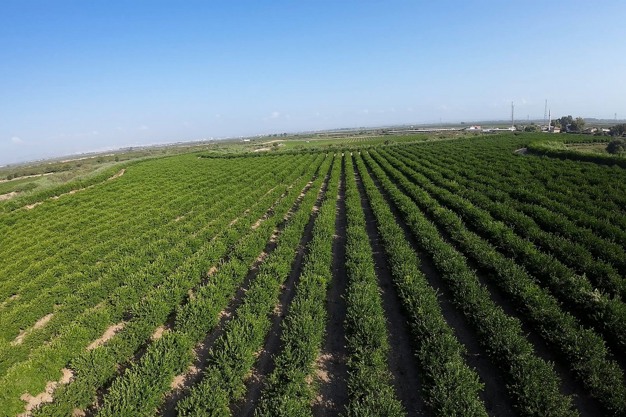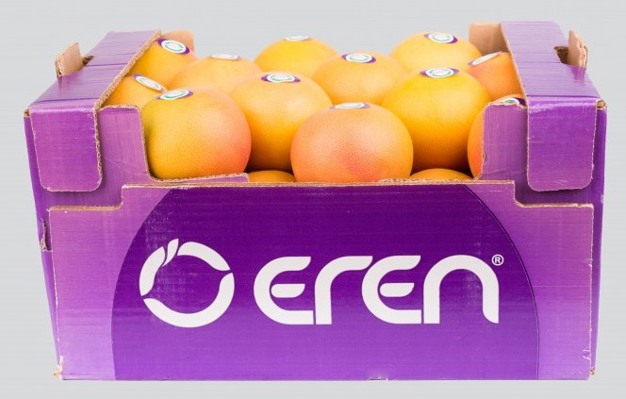The Turkish citrus season is kicking off and there are challenging factors for most of the various citrus fruits, says Coskun Eren, marketing manager for Turkish fresh produce exporter Eren: "The cultivation of our citrus products this season has been marked by significant challenges, primarily due to extreme weather conditions and ongoing climate changes. High temperatures and irregular rainfall patterns have contributed to slower fruit growth and reduced yields. In general, this trend is not good; however, not all types of varieties are in bad situations; for example, some types of Murcott mandarins and oranges have a rather promising situation. Overall, while the season has posed difficulties, our planning and strong supply chain ensure we continue to meet demand."

Overall, a decrease in production across the board is expected, with Eren emphasizing this is particularly extreme for the mandarins this season. "There is a noticeable decline in volumes this season, which varies depending on the type of citrus. For mandarin varieties, the drop compared to last season is as high as 50%, especially on the early varieties. The main reasons for this decline are the reduction in planting areas and adverse weather conditions. However, when it comes to Murcott mandarins, we expect a better season in terms of both yield and quality. Grapefruit seems to follow a similar trend to mandarin overall, though this decline is a global issue, not just in Turkey."
"For lemons, a slight drop is anticipated, but so far we have not experienced any significant negative impact that would change the estimates at the beginning of the season. Although this appears to be a downward movement compared to last season, the total yield is not below average when compared to previous years. Oranges, on which we plan to focus more this year, look much more promising. We expect higher quality and yield compared to previous seasons. Despite the overall negative sentiment around citrus, we are confident that our strong supply network will turn this period into an opportunity."

The heatwave during the summer has caused sunburns, which add to the lower volumes this season, Eren explains: "The recent extreme heat has negatively affected the growth period of our citrus products. Sunburn rates have increased to between 1% and 5%, and this issue has even been observed in varieties like Mayer lemons, where diseases are typically less prevalent. The sustained temperatures above 18 degrees have led to the spread of plant diseases, making production more difficult. The extremely dry summer has also negatively impacted overall citrus production, with slower fruit growth, particularly in regions with limited access to water. Despite these challenges, once weather conditions stabilize, we aim to maintain the quality of our products and achieve the best harvest season."
Eren states that the lemon market has strong competition, especially as South African lemons no longer have an advantage is their pricing. "When it comes to lemons, the demand for Turkish lemons has increased, especially in the European market, as South African lemons lost their price advantage at the beginning of the season. With Spain's Primofiori lemon entering the market, competition has intensified. Spain is currently in a stronger position, leveraging its logistical proximity to Western European countries. However, Turkey still holds a significant advantage in Eastern Europe and Russia. Moreover, we expect a decline in demand for Egyptian lemons in European countries, with Turkish and Spanish lemons likely to come to the forefront. Meanwhile, in North America, demand for Turkish lemons is expected to continue rising."

"For mandarins and grapefruits, expectations are similar to those for lemons. While a decrease in yield is expected in Turkey compared to last season, Spain's mandarin crop is also expected to decline by more than 20%. Regarding grapefruit, the ongoing trend of decreasing demand in Europe continues, particularly as younger generations, such as Gen Z and Alpha, consume less of this fruit. As a result, markets where demand is increasing, may become more attractive," Eren continues.
Overall Eren hopes to be able to jump on opportunities that this challenging citrus season will surely provide: "Our expectations for the upcoming citrus season are that prices will remain high, due to lower yields compared to previous years and increased domestic demand. In the mandarin market, reduced yields and strong domestic demand will keep prices elevated. As we are export-focused, this is expected to raise prices in international markets as well. However, we remain optimistic about oranges, expecting a more productive season in terms of both yield and quality. Our goal, despite the anticipated challenges, is to make the most of the current situation and maintain high-quality standards for our products," he concludes.
For more information:
Coskun Eren
Eren
Tel: +90 533 695 5802
Email: [email protected]
www.freshanatolia.com
